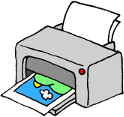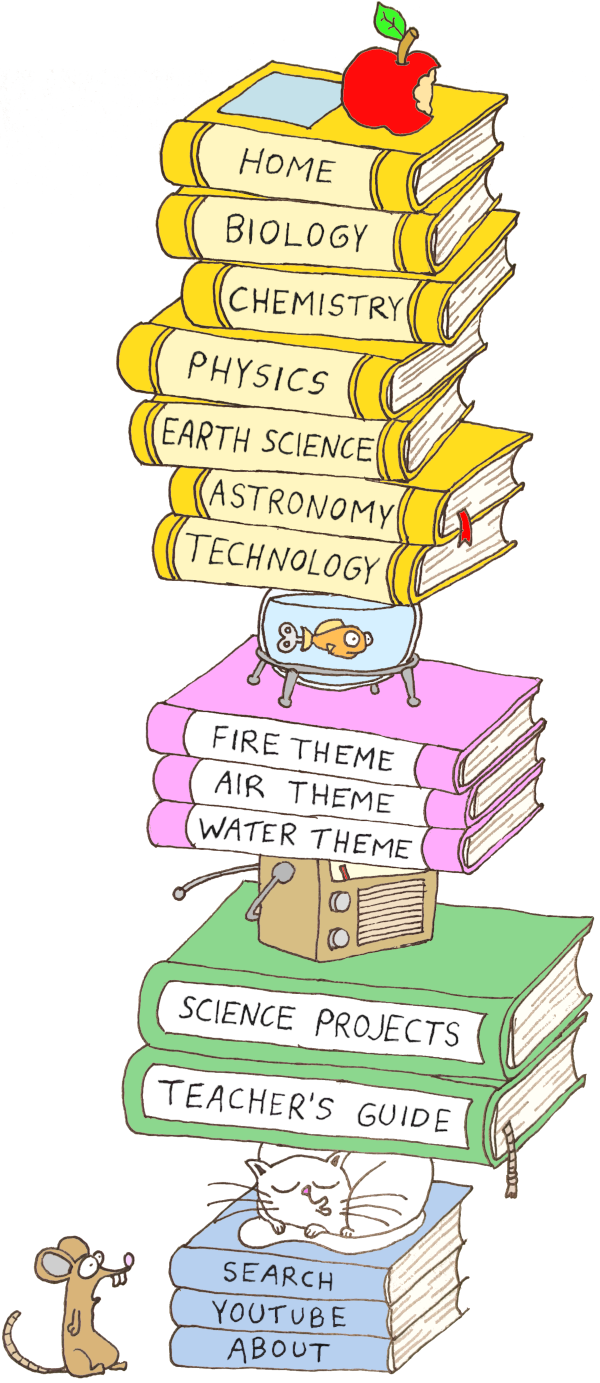Science projects

Do you need a science project idea? For school or a science fair? Here are lists of science project ideas of different types. Further down is a more in-depth description of the different types of science projects.
Science project ideas
The so-called "experiments" in the Experiment Archive are actually:
- Experiments
- Demonstrations (which can become experiments)
- Models (which can become experiments)
- Builds
- Inventions
Demonstration
Do you want to do a demonstration as your science project? Then you can choose:
- Biology:
- Chemistry:
- Physics:
- Earth science:
- Astronomy:
Model
Do you want to make a model as your science project? Then you can choose:
Experiment
Do you want to do an experiment as a science project? Then you can choose any of the demonstrations or models above, and turn them into an experiment. Look under the "Experiment" heading in each demonstration or model (a few exceptions don't have this heading, as they don't work well as an experiment). For a good science project, try answering more than one of the questions listed there and thus performing several experiments.
Build
Do you want to build something as your science project? Then you can choose:
- Physics:
- Earth science:
- Technology:
Invention
Do you want to invent something as your science project? Then you can choose:
What is a science project?
A science project is an activity in school with the goal to learn about science. The word
science in science project usually referres to both natural science and technology. And a lot of times also math and social science.
Natural science is the science of nature. Natural science is divided into several natural sciences. A common division is: physics, chemistry, biology, earth science and astronomy.
Technology has no definition that everyone agrees on (irritating, I know). But it can be defined as the study of tools, where a
tool is the same as an invention, and the same as an aid to perform a task. It can also be defined as something like "the collective toolbox of human kind". Either way, technology is all about tools. And tools are the same thing as inventions.
The word
engineering is often used instead of
technology.
Engineering neither has a definition everyone agress on (even more irritating). But it basically means "the act of creating tools".
Different kinds of science projects
Here we list different kinds of science projects within natural science and technology. For science projects within math and social science, other sites have more expertise.
Demonstration (natural science)
A demonstration is when you follow pre-written steps in order to create and demonstrate a phenomenon of nature. An example is to rub a balloon in order to create static electricity. Most of the "experiments" on this site are not actually experiments if you only follow the steps. They are demonstrations.
Model (natural science)
A model is a copy of something in nature, usually made smaller or larger. For example a model of the solar system. The model then demonstrates a phenomenon of nature, such as the orbits of planets. So all models are also demonstrations. Most of the astronomy "experiments" on this site are actually models.
Experiment (natural science)
An experiment is a demonstration that is carried out multiple times, where one "ingredient" (variable) is changed each time in order to see what happens. What happens if you change the amount of time you rub the balloon? What happens to the seasons if Earth's axis tilts more? In an experiment, you try to answer a question by using the scientific method. The scientific method is summarized as follows:
- Hypothesis - Before the beginning of the experiment, you suggest what conclusion you will be able to draw from the experiment. This qualified prediction, or hypothesis, must be motivated on the basis of already existing knowledge. For example: "I think the heart rate increases when you move, because you need more blood". It doesn't matter if the hypothesis turns out to be true or false. Its function is to give the experiment a clear purpose, namely to test the hypothesis.
- Experiment - The experiment is carried out. In this case, you measure the heart rate during exercise and rest.
- Conclusion - Based on the results of the experiment, a conclusion can be drawn. This conclusion may be fully, in part, or not at all, consistent with the hypothesis. The conclusion should include what significance this has for one's life or society. For example: "The result was that the heart rate increases when you move compared to when you are at rest. This is because the muscles need more oxygen, which is transported in the blood. This means that you train the body's ability to deliver oxygen to the muscles when you move, or exercise."
Research project (natural science)
A research project is when someone else has already found the answer to your question, and you will look for that answer by reading books, interviewing experts or other means. For example: how the universe was formed, or how a LED lamp works.
Collection (natural science)
A collection is a group of similar objects, such as a rock collection.
Build (technology)
A build is a recreation of existing technology. Something that has been made before, but now built by you, in order to show how the technology works. For example a light bulb or a sailboat.
Invention (technology)
An invention is a piece of new technology. Something that has never been made before. For example a new kind of bike or a new aid for blind people.

